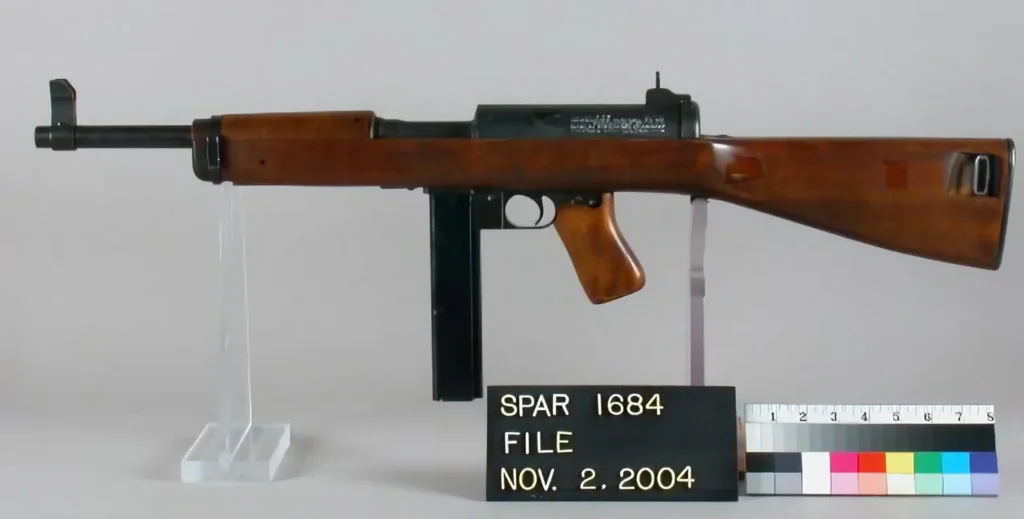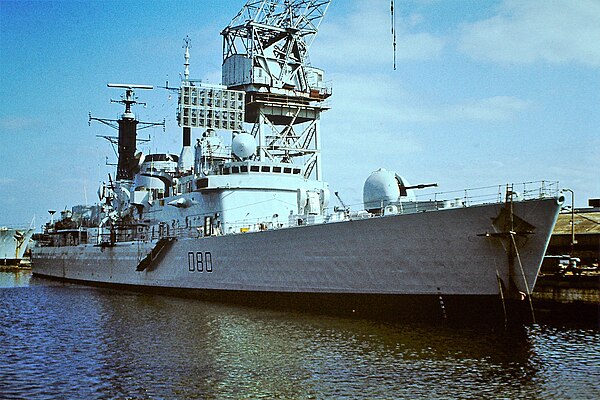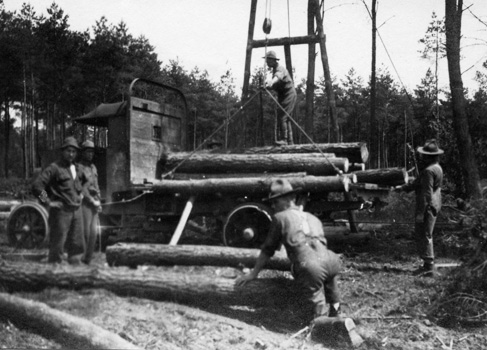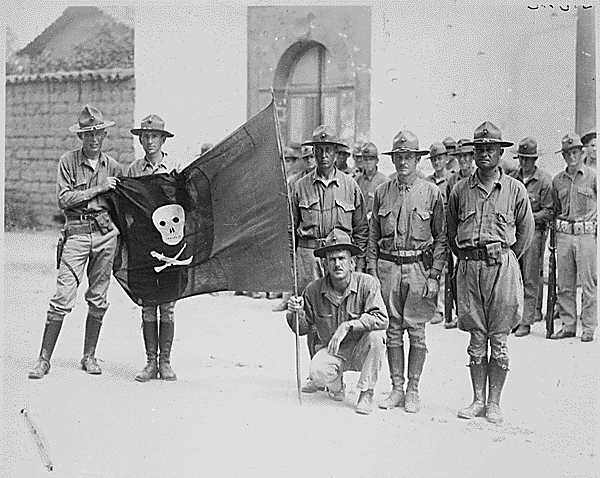During World War II, the United States had two dominating submachine guns, the M1A1 Thompson, also known as the Tommy Gun, and the more affordable M3 submachine gun (SMG) which was produced later in the war. There seems to be a missing number in there. Where is the M2? Was there an M2? Yep, it turns out there most certainly was, and the M2, specifically the M2 Hyde, is the missing M2 SMG.
Like Indiana Jones, I like to discover and search through archives. Honestly, I have a ton of fun diving into digital archives. Recently, I was looking at old and odd guns and stumbled across the M2. Way back in my brain, I recognized the name but realized I knew nothing about the gun or why the M1A1 and M3 have that gap between them. So, today we’ll discover what happened to the M2 Hyde.
The M2 Hyde – A middle child forgotten
George Hyde designed and patented the M2 Hyde in 1935, but the U.S. Army didn’t become interested in it until 1941. General Motors Inland Manufacturing Division built the first M2 prototypes for the Army.
The M1 Thompson had been a good submachine gun in the 1920s, but by WWII it was slightly outdated. It was heavy, had awkward ergonomics, and could be difficult to control. Plus, it was ridiculously expensive to engineer and difficult to produce.
That led the Army to want a more affordable and modern submachine gun. The M2 Hyde was submitted for testing in April of 1942. It was tested head to head with the Thompson and several other designs and came out as the top dog.
The gun was five percent lighter than the Thompson and about 95 percent more reliable in mud and dust tests. The M2 was also quicker and easier to produce. The Army and Marine Corps needed lots of SMGs, so they expected the gun to be delivered as soon as possible.
Related: The Bushmaster carbine – Made for the jungle
Breaking down the M2 Hyde
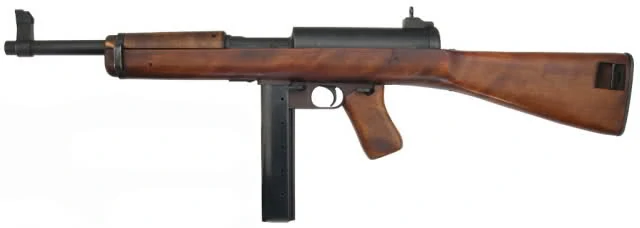
The M2 Hyde was a fairly standard SMG for the time but also fairly interesting externally. The gun utilized lots of wood. The stock, pistol grip, and forend were all one big piece of wood. It had a lot of similarities with the M1 Carbine.
The receivers were, of course, metal; they used a combination of forged front receiver and tubular rear. The gun weighed nine pounds and four ounces. The barrel was 12 inches long, and the overall length was 32 inches.
Inside the M2, Hyde used a simple straight blowback design that fired from an open bolt. The gun was chambered in 45 ACP and used Thompson magazines. The weapon kept a relatively low rate of fire at 570 rounds per minute, making it quite controllable.
Related: Letters to Loretta: An American B-17 bomber versus Nazi fighters
Trouble in Paradise

However, Inland, the company that was to produce the weapon, was busy producing the M1 Carbine and did not have room to produce the M2. So, it turned to subcontractors, specifically Marlin, to produce the M2 Hyde. Marlin was to produce 165,000 of the guns, but its first runs were faulty, and the guns were unreliable and poorly built.
Marlin went back at it but could never produce the gun successfully in any great numbers. Production was supposed to start in December of 1942, but by the end of March 1943, none had been produced as Marlin had difficulty obtaining the materials necessary to successfully produce the gun.
Specifically, Marlin couldn’t obtain the dies needed to produce six important parts. The gun used several parts made from compressed powdered metal, which was a new process at the time. Ultimately, Marlin only produced 400 of the guns.
Since the guns were taking so long to produce, the military ordered additional Thompsons from Savage and Auto-Ordnance. They also began developing another cheap and easy-to-manufactured submachine gun. This resulted in the M3 submachine gun, which was quickly adopted and produced. Interestingly enough, George Hyde was also the designer of the M3.
The M2 Hyde was completely abandoned by the military. Instead, the M3 would go on to serve up until Desert Storm in limited roles. The M2 Hyde guns were never issued and likely destroyed or sold off.
The life and times of an SMG

The M2 Hyde had tons of potential. It was reportedly a great gun but might have been a little too ahead of the time.
Further, the method to manufacture it was seemingly difficult, especially during a world war when resources were tight. Sadly, it never lived up to its strengths and it faded away.
